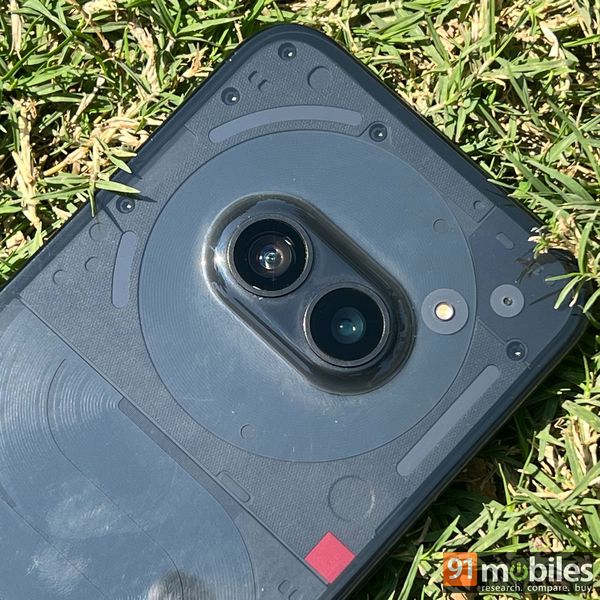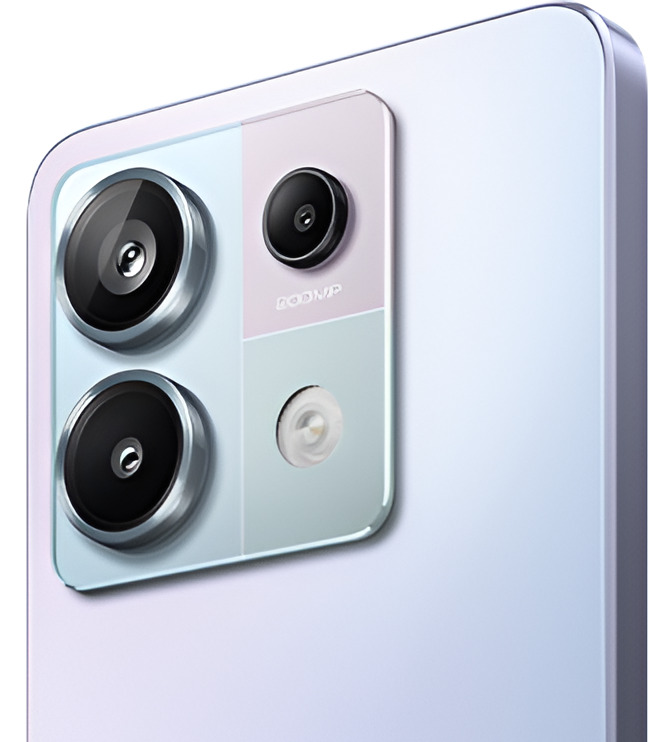The highly anticipated Nothing Phone (2a) (review) made its debut in India this week, entering the fiercely competitive mid-range segment. Packed with a tall 6.7-inch 120Hz AMOLED panel, dual 50MP rear cameras, a 5,000mAh battery, and Android 14 out of the box, this smartphone is priced attractively under Rs 25,000. To determine which smartphone provides better value for money, we will compare the Nothing Phone (2a) against one of its chief competitors, the Redmi Note 13 Pro 5G, another capable mid-ranger in the segment.
Nothing Phone (2a) vs Redmi Note 13 Pro: key specifications
| Smartphone | Nothing Phone (2a) | Redmi Note 13 Pro |
| Display | 6.7-inch 120Hz FHD+ AMOLED panel | 6.67-inch 120Hz 1.5K AMOLED panel |
| Processor | MediaTek Dimensity 7200 Pro | Qualcomm Snapdragon 7s Gen 2 |
| Storage | Up to 12GB RAM and 256GB storage | Up to 12GB RAM and 256GB storage |
| Cameras | 50MP+50MP rear cameras, 32MP front camera | 200MP+8MP+2MP rear cameras, 16MP front camera |
| Battery, charging | 5,000mAh battery, 45W charging | 5,100mAh battery, 67W charging |
Nothing Phone (2a) vs Redmi Note 13 Pro: price in India
| Nothing Phone (2a) | Redmi Note 13 Pro |
| 8GB+128GB: Rs 23,999 | 8GB+128GB: Rs 25,999 |
| 8GB+256GB: Rs 25,999 | 8GB+256GB: Rs 27,999 |
| 12GB+256GB: Rs 27,999 | 12GB+256GB: Rs 29,999 |
Nothing Phone (2a) vs Redmi Note 13 Pro: design
The Nothing Phone (2a) has a revamped look while still retaining Nothing’s design philosophy. The rear panel is made out of plastic and retains its transparency, like the Phone (1) and (2). What has changed, though, is the camera position. The rear cameras are now positioned horizontally near the top centre of the back panel, giving the impression of a sci-fi robot staring at you, complete with the dual rear cameras serving as eyes and the overall transparent, modular aesthetic.
The phone has reduced the number of glyphs (LED lights) to just three, around the camera module. The power button lies on the right spine, while the volume rockers are placed on the left. The bottom houses the Type-C port, speaker grille, and SIM card tray. The device features IP54 dust and water resistance. It is available in simple White and Black colours.

The Redmi Note 13 Pro comes with a glass rear panel and flaunts an elegant design. The Coral Purple variant, in particular, captivates with its tri-color camera module, adding a distinctive touch. The other colour options feature a more understated design, maintaining an attractive look through a minimalistic approach. The device also comes with a 3.5mm headphone jack and an IR blaster. In terms of protection, the device also has an IP54 rating. The smartphone is available for purchase in Coral Purple, Arctic White, and Midnight Black colour variants.
Nothing Phone (2a) vs Redmi Note 13 Pro: display
The Phone (2a) equips a 6.7-inch AMOLED panel with a Full HD+ resolution (2,412 x 1,084p), an adaptive refresh rate from up to 120Hz, 2160Hz PWM dimming, and 1,300 nits of peak brightness. The display comes with thin bezels, which improve the viewing experience, and flat edges that ensure good viewing angles. The 100 percent DCI-P3 colour gamut ensures vibrant visuals. The Corning Gorilla Glass 5 protects the panel against damage.
The Redmi Note 13 Pro 5G features a comparable 6.67-inch 1.5K AMOLED display with a resolution of 2,712 x 1,220p, a refresh rate of 120Hz, 1920Hz PWM dimming, and a peak brightness of 1,800nits. The display panel also has thin bezels and comes with a 100 percent DCI-P3 colour gamut, supports Dolby Vision, and holds Widevine L1 certification, enabling seamless HD content streaming on OTT platforms. The Corning Gorilla Glass Victus protects the display against damage.
Conclusion: In terms of display, the Redmi Note 13 Pro 5G takes the lead with its higher resolution display and much higher peak brightness level. The display also features Gorilla Glass Victus compared to Glass 5 on Phone (2a), which offers better protection against damage.
Nothing Phone (2a) vs Redmi Note 13 Pro: cameras
The Nothing Phone (2a) comes with a 50MP Sony IMX890 main sensor paired with a 50MP Samsung JN1 ultra-wide sensor for its rear camera setup. At the front, there’s a 32MP Sony IMX615 lens for selfies and video calls.

The Redmi Note 13 Pro 5G ships with a 200MP Samsung ISOCELL HP3 1/1.4-inch sensor with OIS+EIS image stabilisation, and 4x in-sensor zoom, paired with an 8MP ultra-wide camera and 2MP macro lens. It comes with a 16MP punch-hole front camera.

Conclusion: On paper, the Note 13 Pro features a higher resolution primary camera, which should lead to better results, while the ultra-wide images on the Nothing are likely to be better, thanks to its 50MP ultra-wide lens. The front camera on the Nothing Phone (2a) has a higher-resolution lens, which should offer better images.
Nothing Phone (2a) vs Redmi Note 13 Pro: performance and software
The MediaTek Dimensity 7200 Pro powers the Nothing Phone (2a) while the Snapdragon 7s Gen 2 chipset powers the Redmi Note 13 Pro. Both phones come with up to 12GB of RAM and 256GB of storage support.
In terms of software, the Phone (2a) comes with NothingOS 2.5, based on Android 14 out of the box, while the Note 13 Pro features MIUI 14 based on Android 14 pre-installed.
Conclusion: The MediaTek Dimensity Pro 7200 is a more capable chipset on paper, which should offer better performance. On the software side, both phones come with Android 14 but the Phone (2a) takes the lead with a better custom skin, which is closer to stock Android and free from bloatware.
Nothing Phone (2a) vs Redmi Note 13 Pro: battery
A 5,000mAh battery with 45W charging support powers the Phone (2a), while a 5,100mAh battery with 67W charging support fuels the Redmi Note 13 Pro.
Conclusion: The battery performance on both devices should be comparable, however, the Redmi Note 13 Pro offers better charging speed with its 67W fast charging and even comes with the charging adapter included in the box.







